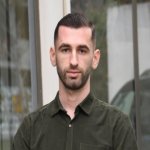Portuguese Media Writes about Their Citizen Killing Albanian Businessman
A manhunt is underway in Albania for a Portuguese national described by tabloid Correio da Manhã as “a mercenary”.
Rúben Saraiva is in fact one of five individuals being sought in connection with the assassination earlier this month of a businessman with political aspirations believed to have had connections with the Albanian mafia.
The story has been featured in the British press – with graphic footage of the killing which took place in the coastal town of Shëngjin on April 19 – as the other people being sought are British citizens.
Here, news focuses only on Saraiva, a young man who is understood to have emigrated to UK and presumably then become involved with the Albanian mafia there.
According to reports, Saraiva is believed to have been the ‘hit man’: the other men and one woman travelling with him tasked with giving him protection.
CM refers to his having travelled to Albania two months ago.
During this period “he tried at least two attempts to eliminate the target without realising his objective”, says the paper.
The victim was eventually cornered in a café he himself owned, where he was shot at close range seven times.
Saraiva and his alleged accomplices are then believed to have left Albania – over the land border with Northern Macedonia – and returned to UK, says CM.
Albanian police commander Muhamet Rrumballaku has “identified the Portuguese as the shooter in the murder”, says the paper.
According to the Sun newspaper in UK, investigations there are being coordinated by the National Crime Agency and the Metropolitan Police.
It is unclear whether CM’s contention that Saraiva is being sought by police forces all over the world is correct, but he is certainly sought in UK and Albania.
Muhamet Rrumballaku told journalists this week that police have discovered ‘evidence’, including shell casings, firearms, cell phones “and other biological proof”, that this murder “was premeditated and carried out by a structured criminal group”.














